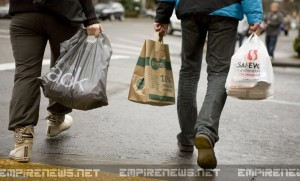OAK BLUFFS, Massachusetts – 
Day 5 of President Barack Obama’s annual vacation to the resort island community of Martha’s Vineyard was met with dismay and controversy, when a fresh-water pond was drained so that a commemorative golf ball could be retrieved.
During an early round of play at the exclusive Farm Neck Golf Club located in the town of Oak Bluffs, an unidentified member of the President’s entourage hit a ball into a pond facing the eastern edge of the course. The water hazard is located above a natural aquifer made up of sand and gravel, and serves as an essential ground water filter.
Cal Silva, Environmental Quality Officer for Dukes County remarked, “The natural purifying system provided by the aquifer is indispensable for proper environmental balance, not only for this locale, but also for the entire Island. We learned today that the pond was drained by executive order without our consent. A homeowner whose property abuts the golf course informed me when he noticed that dredging of the pond had started, and quite honestly, I was shocked. The health and well-being of local shellfish and wildlife may very well be severely compromised due to this,” added Silva.
Reaction spread quickly throughout this closely-knit community, made up of year-rounders, summer residents, and day-trippers. Cafe owner Suzanne North expressed a commonly shared opinion.
“This the kind of place where you leave things the way you found them, especially when it comes to nature. It’s unfathomable to me how this was allowed to happen, and all for a golf ball? This is one of the few places left where people can share something special. A lot of my regulars are very upset about it.”
Cafe patron Roland Sanders commented, “They [the President and his family] keep a pretty low profile around here normally, except for when they come in town to one of the restaurants. You wouldn’t hardly know they’re here until the whole Secret Service shows up and whatnot, so that’s pretty exciting because you know he’s close by. But this thing with the pond has made a lot of people a little uncomfortable now. It’s like they took charge all of a sudden and changed the way things work without first thinking about the Vineyard or asking anybody.”
Not everyone in the town was as upset at the situation as Sanders, though. Several avid golfers from the area say they completely understood losing a ball in that water trap.
“I’ve golfed at Farm Neck many, many times,” said resident Henry Bellows. “I’ve lost countless balls to that pond. If I had the power to have it drained to get them back, I would have. Now that it’s happened, though, I am tempted to sneak down there with a bucket and pick up some free balls.”
Quality officer Silva expressed optimism that the natural balance could be restored if enough rainfall replenishes the now drained wetland.
“Nature has a way of taking care of itself. Already there are a number of birds who are feeding at the marshland that was created by this event, so that’s a benefit in a strange way which we’ve not been able to observe before. I can only hope for the best, but my office will be meeting with the President’s staff and I’ve personally requested a meeting with the head of the EPA. She’s a New Englander, so I know she understands the island and how strongly we feel about this.”
According to reports, Environmental Protection Agency Administrator Gina McCarthy, a Greater Boston area resident, would soon be traveling to the island, located 4 miles from the Massachusetts coastline. President Obama would not comment on the incident, but a representative from the White House said that the environment has always been important to the President and his family.
“This was a really important golf ball, though,” he added. “One of a kind. In case you are wondering, we were able to retrieve the ball after draining the pond, so it was not a total loss.”
































